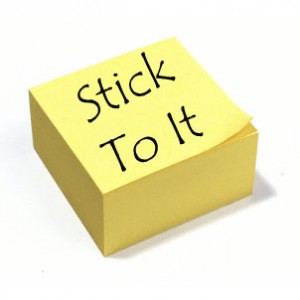Budgeting.
Something that everybody “means” to do, but most it seems never actually get around to it. Budgets are not only a way to get out of debt, but also a way to stay out of debt.
Budget is a pretty common word that gets thrown around a lot, but what exactly does it mean? According to the Merriam-Webster dictionary, the word budget is defined as: An amount of money available for spending that is based on a plan for how it will be spent; a plan used to decide the amount of money that can be spent and how it will be spent.
So let’s make a plan.
First, It’s important to have a goal in mind. In order to make an effective budget, the goal should be to control our spending so that our expenses are less than our income. In other words, we need to spend less money than what we make. We also need to decide what matters most to us. That way we can spend less on stuff that isn’t as important as other things.
Now that we have a goal in mind, we need to track our spending for a little while so we  know where we are spending our money. This will be eye-opening. More than likely we’ll see that we are spending way too much on things that are unimportant. This can go from a week, to even a month. Write down all of the money you are bringing in, then after tracking spending, write down everything you have spent money on.
know where we are spending our money. This will be eye-opening. More than likely we’ll see that we are spending way too much on things that are unimportant. This can go from a week, to even a month. Write down all of the money you are bringing in, then after tracking spending, write down everything you have spent money on.
Once we track our spending for a little while, we can see where our money has been going so we can better control our spending. We can cut out areas in our spending that just isn’t necessary. Spending less on fast food, taking shorter showers to save water, clipping coupons. These are some easy ways to save a little bit of money and cut down on our spending.
If we decide what is more important to us to spend money on, we can make a budget. One of the most important things to do is to WRITE IT DOWN! Write down on paper where you are going to spend money and where you aren’t going to spend money.
So how do we stick to it?
Writin g it down is the first step. When you have a written budget, place it somewhere that you will see regularly. Somewhere right in front of your nose that you can’t help but to see every single day. If you are constantly reminded of your budget, it will be much harder to spend money on unnecessary stuff.
g it down is the first step. When you have a written budget, place it somewhere that you will see regularly. Somewhere right in front of your nose that you can’t help but to see every single day. If you are constantly reminded of your budget, it will be much harder to spend money on unnecessary stuff.
Another tip for sticking to a budget is use cash. Withdraw the amount of money that you have to spend, and don’t bring a debit or credit card along with you. This way, there is absolutely no way to overspend your money.
Finally, it’s important to have an accountability partner. This is somebody that you can tell about your commitment to stick to a budget, and their job is to hold you to that. Have them ask you questions about how your spending is going. The catch to having an accountability partner is that you have to tell the truth. If your accountability partner asks you about your spending and you lie about it, there’s nothing they can do.
So let’s recap
To make a budget we need to have a goal in mind, track our spending, and cut the areas where we are spending too much on unnecessary things. We need to make sure that we are making more money than we’re spending.
To stick to a budget we need to write it down, and put it right under our nose. We could also spend cash rather than a credit card, or have somebody to hold us accountable to sticking to our budget.
Follow these things and without a doubt you’ll be a successful budgeter in no time!

